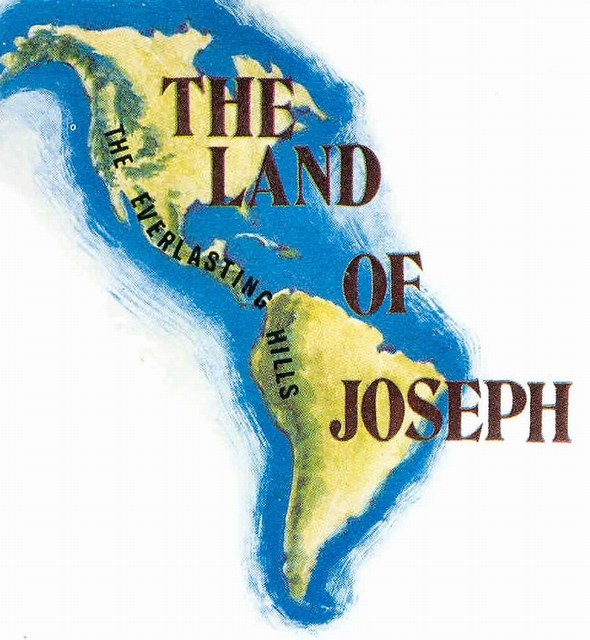
AMERICA IN BIBLICAL PROPHECY?
John McDonald, Elias Boudinot, Ethan Smith, and the Mormons
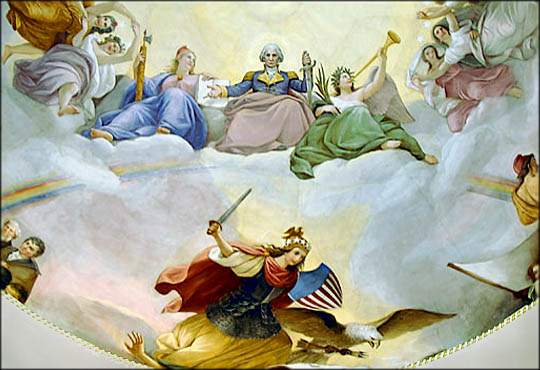
General George Washington -- Ascended to Heaven and Overlooking Militant America |
Elias Boudinot | Ethan Smith | Halcyon Church | Modern Pilgrims | New England Sects
British Israelites | The Wood Scrape | M. M. Noah's Israelite Gathering | Mormon Israelites
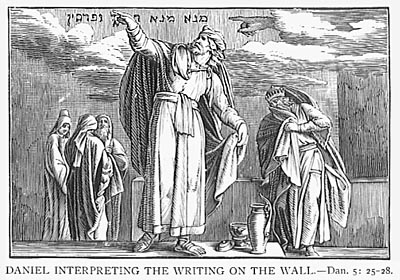
INTRODUCTION Is the American continent spoken of in the Bible? Were its location, history and inhabitants known to the ancient Israelite, Jewish and Christian patriarchs and prophets? Upon first consideration, the answer appears to be "no;" but does the question merit further investigation? Were the early Mormons correct, or were they mistaken, when they pointed to certain biblical passages as proof of their own latter day authority and teachings? Do scriptural passages really validate Mormon claims for American pre-history and as the chosen site for a New Jerusalem? This web-page will (when completed) feature a number of different views, conclusions and resources on this interesting subject -- ranging from the opinions of Christopher Columbus to the writings of more recent "experts," and covering a spectrum of theologizing, from the New England Puritans to the Latter Day Saint prophets, seers and revelators. Several important questions should be addressed here: What prominent writers first asserted that the Americas are mentioned in the Bible? Who agreed and disagreed -- and how did those assertions evolve over time? What has been said about the origin of the Native Americans -- and about their place in the greater scheme of Judeo-Christian beliefs? Was the biblical religion known and practiced in the New World in preColumbian times? Was the western hemisphere visited and evangelized by ancient Christian leaders? Did any noteworthy events occur in the Americas around the time when Jesus was crucified in Judea? Will Israelite tribes gather to the Americas to fulfil prophecy? And -- will the "New Jerusalem" be established upon the American continent as a prelude to the Christian Millennium? Consequences of the Spanish Conquest None of the above questions had any partucular relevance in the days before the Spanish explorers and colonizers reached the New World. The known world in 1491 appeared to conform roughly to the biblical model, with Asia, Africa and Europe supplying all the lands necessary to encompass the "ends of the earth," "the isles of the sea," and the "four corners of the world," (even though one of those four continental corners was missing). The wandering Vikings' discovery of "skraelings" west of Iceland was a matter of concern for the Bishop of Greenland perhaps, but not for the Pope at Rome nor the learned doctors of Europe. Then, a year later, everything changed... Scripture and Speculation: Part 1: A Brief Overview 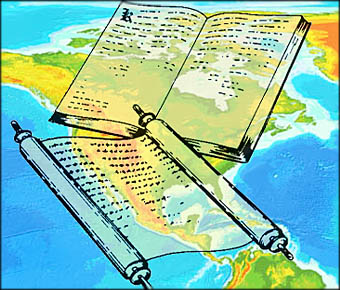
The Continents of the New World as a Land of Biblical Prophecy "Many say and affirme that in the holy Scripture it was foretold long before that this new worlde should be converted to Jesus Christ by the Spanish nation... there is great reason to beleeve that mention is made in the holy Scripture of a matter of such importance as the discoverie of the Indies, of the new world, and their conversion to the faith. Isaias saith in these wordes: 'Oh the wings of ships which come from the other part of Ethiopia.' ('Woe to the land shadowing with wings, which is beyond the rivers of Ethiopia.' -- Isaiah xviii, 1.) Many learned Authors hold that all this Chapter is understood of the Indies; and that same Prophet in an other place saith: 'Those which shall escape out of Israel shal goe farre off to Tharsis and to remote islands, where they shal convert many Nations unto the Lord.'" (José de Acosta, 1590) |
|
THE MORMON "ISRAELITES" The LDS Political Kingdom of God in America Council of 50 | Ten Tribes of Israel? | Are We of Israel? | Political Kingdom 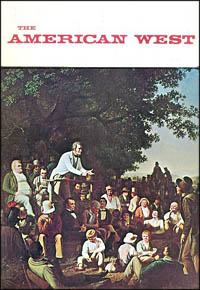
Vol. V. September 1968. No. 9. Copyright © 1968 American West Mgt. Corp. (all rights reserved - fair use reprints only) JOSEPH SMITH AND THE POLITICAL KINGDOM OF GOD: The Presidential Candidacy Might Seem Madness But What of a Monarchy in Texas? by Klaus Hanson [20] Political millennialism has been a wellspring of Western Civilization for more than three thiusand years. The Biblical prophet Daniel, in his interpretation of King King Nebuchadnezzar's dream, recorded a scripture that was to stir many a dreamer after him: "And in the days of these kings shall the God of heaven set up a kingdom, which shall never be destroyed; and the kingdom not be left to other people, but it shall break in pieces and consume all these kingdoms, and it shall stand forever." (Dan. 2:44). The established Christian churches have given this scripture a symbolic interpretation, seeing it as a prophecy of the final victory of a spiritual kingdom of God, But many, too, have pursued that kingdom as a literal, political one, in the tradition of the Anabaptist John of Leyden, who in 1534-35 held sway over Munster with crown and sceptre, attended by a retinue of dukes, an army, and faithful subjects; in every instance the kingdom was to be in preparation for the literal return of Christ as king of the world, to rule for a thousand years in a millennial kingdom of peace and righteousness. 
Of all these movements, which sprang up like mushrooms in early nineteenth-century America, one of the most literal-minded and successful was Mormonism. Founded by Joseph Smith in 1830, the new religion gradually demanded of its converts allegiance to a kingdom of God that was not only spiritual, social, and economic, but political as well. By 1844 Joseph Smith had decided on a complete fusion of religious and political aspirations. He pronounced his divine mission in unmistakable terms to his followers in Nauvoo, Illinois: "I calculate to be one of the instruments of setting up the kingdom of Daniel by the word of the Lord, and intend to lay a foundation that will revolutionize the whole world. . . .
(to comply with copyright restrictions,
He did so in accordance with a revelation given on April 7, 1842, which demanded the organization of "the Kingdom of God and His Laws with the keys and powers thereof and judgment in the hands of his servants." Realizing the social and political implications of such a move, Smith carefully prepared and tested a group of his most loyal followers. On March 11, 1844. he decided the time had come when he could finally entrust the secrets of the kingdom to these men by initiating them into a highly secret organization variously called the General Council, Council of the Kingdom, Council of the Gods, and Living Constitution. The most frequently used name was simply Council of Filty, an appellation that had its origin in the approximate number of men comprising the body. According to one member, the council so guarded the confidential nature of its administrative [21] and governmental activities that from time to time it burned official papers. A charter member of the Fifty, John D. Lee, in a rather crude attempt to protect its identity, referred to it in his diary entries by the ingenuous cipher, YTFIF. The first clerk, William Clayton, tried to veil references to the council by using the term "K. of G." Those who revealed the secrets of the organization were subject to the death penalty, although it is difficult to determine whether it was ever carried out. The fear of such consequences, however, is clear in the case of John Pack, who had failed to guard the council's secrets sufficiently, "which should be as safe as though [they were] locked up [in] the silent vaults of eternity." The offender, "pled for forgiveness, said 'try me a little longer. Then, if I don't prove true, deal with me as you think proper, if it is to cut my head off." In view of the purposes for which the council had been established, and in view of its subsequent activities, this degree of secrecy was only to be expected. According to John D. Lee, the organization's ambitions were indeed vast: "This council alluded to is the Municipal department of the Kingdom of God set up on the Earth, from which all law eminates, for the rule, government & control of all Nations, Kingdoms & towns, and People under the whole Heavens..." 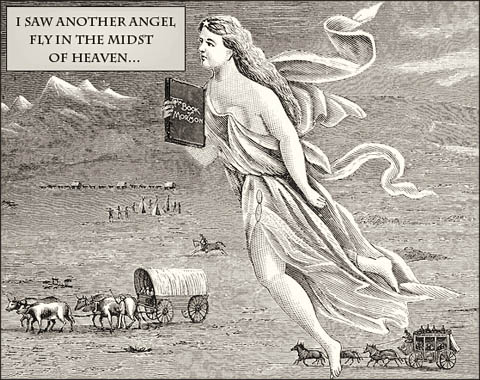
Because their religion was infused with a great deal of spread-eagle American nationalism at a time when Manifest Destiny had become the watchword of the nation, the Mormons thought that the United States was perhaps the logical instrument for their divinely inspired political mission. If Joseph Smith could be elected President of the United States, this might provide a stepping-stone for the ultimate goal of world dominion. Viewed from hindsight, these dreams of Smith and his council seem to border on megalomania. But was it really unreasonable for a man who knew that he was carrying out the will of God to believe that he could be elected President of the United States? George Miller, another charter member of the Council of Fifty and Presiding Bishop of the Church, did not think so: "If we succeeded in making a majority of the voters converts to our faith, and elected Joseph president, he wrote hopefully, "in such an event the dominion of the kingdom would be forever established in the United States.". . .
(to comply with copyright restrictions,
Moreover, it appears that Miller may [22] have been overly impressed with the rhetoric of the occasion. It was, after all, a heady prospect for a group made up largely of artisans and farmers to be told that they were to be the governing princes in the Kingdom of God with authority to rule the nations of the earth. But Smith's own aspirations must have been somewhat less literal. Surely, if he dreamed of becoming President, he could not aspire to be a literal king at the same time, especially when his own Book of Mormon had emphatically predicted that no kings were to rule in America. It was quite likely, then, that the ceremony was essentially symbolic, since Smith introduced a great deal of symbolism into Mormonism. 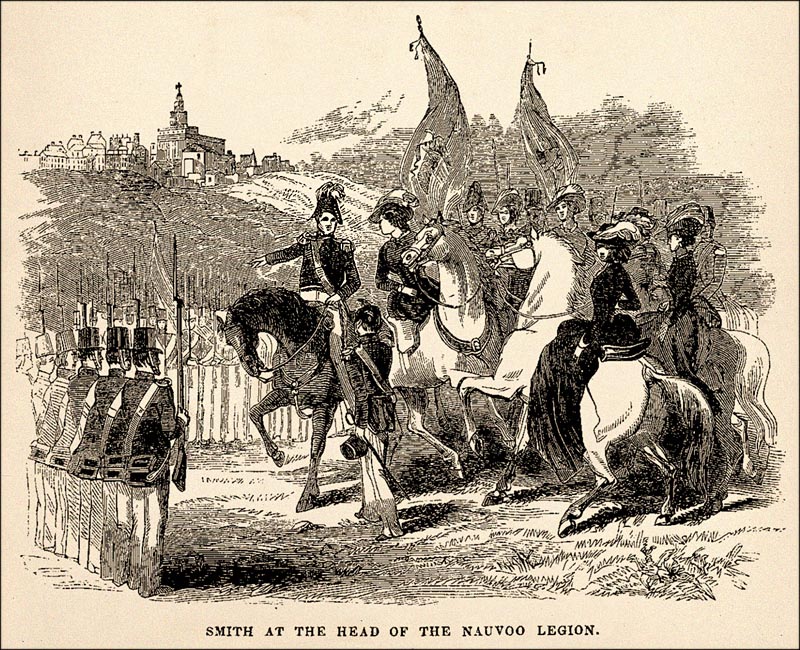
Whatever the symbolic meaning, there can be no doubt that Smith held real political power within Mormondom and that he and his council made every effort to establish a Mormon state as a political entity. Smith's political candidacy was only one of several alternatives that the council seriously entertained for a realization of that goal. Most council members were Yankees and shared the old American philosophy that God helps those who help themselves. Perhaps God willed Joseph to become President of the United States, but even God could fashion a miracle only if Joseph was prepared. So the Council of Fifty went on the political stump for the Prophet. But perhaps God had something else in mind. The position of the Saints in Illinois was becoming increasingly precarious. By the spring of 1844 both internal dissension and external pressures bode to those Saints who could see and hear that the persecutions of Missouri might be repeated in Nauvoo. So the Council of Fifty, only three days after Smith had called its first meeting, commissioned the architect Lucien Wood- worth to go to Texas to negotiate with Sam Houston and the Texas Congress for the establishment of the Kingdom of God. The lands the Mormons wanted to settle were in the disputed region extending from the Nueces River south to the Rio Grande. Texans were eager to have large groups of settlers move into this largely uninhabited area in order to establish a bulwark against both Mexican and Indian depredations. Sale of public lands, furthermore, was one of the principal sources of revenue for the financially embarrassed republic. The Mormons thus had good reason to believe that they would be welcome in Texas. . . .
(to comply with copyright restrictions,
Under these seemingly auspicious circumstances the Council of Fifty sent an emissary to Texas. Records of the negotiations between the council and the Texas government reveal that the over-optimistic Mormon leaders acted as if the Kingdom of God were already a political state, or at least a quasi-independent government. George Miller insisted that Lucien Woodworth was sent as "minister to the then Republic of Texas to make a treaty with the cabinet of Texas for all that country north of a west line from the falls of the Colorado River to the Nueces, thence down the same to the Guli of Mexico, and along the same to the Rio Grande, and up the same to the United States Territory." The Republic of Texas was to recognize the Mormon Kingdom of God as an independent nation. In return, the Saints were to help the Texans "defend themselves against Mexico, standing as go-between [sic] the belligerent powers." Miller's language is in keeping with that of an address made by George Q. Cannon to a group of Mormon missionaries, in which Cannon said the Kingdom of God was "to become a political power, known and recognized by the powers of the earth; and you, my brethren, may have to be sent forth to represent that power as its accredited agents * * * at the courts of foreign nations." It seems doubtful, however, that the Texas government formally "received" Woodworth, thereby recognizing the diplomatic pretensions of the "minister." Recognition of the esoteric Mormon government would have placed the Texans in a most embarrassing position vis-a-vis the United States. According to Miller, however, Woodworth returned from Texas with the preliminary draft of a "treaty," although it is unlikely that the Texans saw the negotiations in that light. Woodworth returned to Illinois on May 2, 1844. On the following day, the Council of fifty convened and received the report [23] of its emissary, Miller reported that "it was altogether as we could wish it. On the part of the church there were commissioners appointed to meet the Texan Congress to sanction or ratify the said treaty, partly entered into by one minister and the Texan cabinet. A. W. Brown, Lucien Woodworth and myself were the commissioners appointed to meet the Texan Congress." The council, however, did not stake it entire plans on Texas, but also explored other potential habitats for the Kingdom of God. In Washington, Orson Hyde had instructions to negotiate with the federal government to secure its aid in settling the Saints in some unoccupied region of the trans-Mississippi West. It was in connection with this mission that the council, on March 21, 1844, appointed Dr. Willard Richards to draw up a memorandum to Congress requesting the federal government to give Joseph Smith authority to raise an army of one hundred thousand men. Hyde reported that the Saints could expect little federal support for their plan, and advised Smith and his associates that "if the Saints (are to) possess the kingdom I think they will have to take it; and the sooner it is done, the more easily it is accomplished." To the Mormon Prophet this was gratuitous advice. The problem was not that the Saints had to "take the kingdom," but how this could be accomplished? . . .
(to comply with copyright restrictions,
It seems, from the best information that could be got from the best men who had seceded from the Mormon Church, that Joe Smith about this time conceived the idea of making himself a temporal prince as well as spiritual leader of his people. He instituted a new and select order of the priesthood, the members of which were to be priests and kings temporally and spiritually, these were to be his nobility, who were to be the upholders of his throne. He caused himself to be crowned and anointed king and priest, far above the rest; and he prescribed the form of an oath of allegiance to himself, which he administered to his principal followers. To uphold his pretensions to rayalty, he deduced his decent by an unbroken chain from Joseph the son of Jacob, and that of his wife from some other renowned personage of Old Testament history. The Mormons openly denounced the government of the United States as utterly corrupt, and as being about to pass away, and to be replaced by the government of God, to be administered by his servant Joseph. Even more detailed is the account by George Davis, who claims for his source of information none other than defected members of the Council of Fifty: That the authority with which God had clothed him (Smith), being "Jure Divino," extended over all mankind, and was paramount and superior to any human authority. Joe further stated, that God had revealed to him, that the Indians and Latter Day-Saints, under Joe as their King and Ruler, were to conquer the Gentiles, and that their subjection to this authority was to be obtained by the sword! From thos revelation, he enforced upon them that it was necessary he should be crowned King, and they, believing in the gross imposition, yielded to his edict. Joe was accordingly cowned KING under God, over the immediate house of Israel. This ceremony was performed in 1842, by a council of fifty in number denominated the "ANCIENT OF DAYS." * * * He further impressed upon the council crowning him, that God's desire was, as revealed to him (Joe), that, for the time being, this was to remain a perfect secret until God should reveal to the contrary. And accordingly Joe swore them all to present secrecy, under the penalty of death! If such accounts only implied that Smith had engaged in treasonable activities, some of his enemies came right out and said so. In an unpublished reply to Smith's famous appeal to the Green Mountain Boys sent to Thomas C. Sharp, anti-Mormon editor of the Warsaw Signal, the writers accused Smith: "That you and your clan did consider yourselves a separate nation as much so as any foreign nation * * * you and your followers cast off all allegiance to the General or states government and assumed a new one for yourselves, and that act, we consider no less than high treason * * *" The most direct accusations, however, were made by Wilson Law, one of Smith's closest associates before his excommunication in 1844. In an attempt to obtain a warrant against Smith for treason, Law charged that the Prophet, while preaching on the text of Dan. 2:44, declared "that the kingdom referred to was already set up, and that he was king over it." Almost identical charges were levelled against Smith in the Nauvoo Expositor. Although the affair had been described by many [24] times, none of these accounts takes into consideration the existence of the Council of Fifty in Nauvoo in 1844; yet an examination of its role in the controversy provides a new dimension for understanding the causes of the death of the Smith brothers. The Expositor was a newspaper started by a group of disgruntled Mormons under the joint leadership of Dr. Robert D. Foster, who put up most of the money for the press, and William Law, second counselor to Joseph Smith for over two years. Law claimed to be firmly convinced of the validity of Mormon doctrine. By April, 1844, he was equally certain that Joseph Smith was a fallen prophet. According to Law, the rift with Smith had its origins in the Prophet's authoritarian insistence upon managing all temporal affairs of the Saints, including those of William Law. The second counselor, however, claimed that he avoided an open break with Smith until he learned of the doctrine of polygamy. Dr. Foster, likewise, insisted that he broke with the Prophet over this same doctrine. Smith had set April 20 as the date for Foster's church trial. Foster, however, intended to use the trial as a platform to condemn the Prophet. To prevent such a possibility, a secret council excommunicated Foster along with William, Wilson, and Jane Law "for unchristianlike conduct." It is of considerable interest that of the thirty-two persons present at this meeting twenty-two can be identified as members of the Council of Fifty. 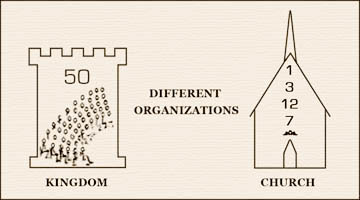
Why should the Council of Fifty take such a special interest in a church trial? That its concern was warranted is indicated by the aims of Law and Foster. Law was more dangerous to church unity than apostates like John C. Bennett, because Law still professed to believe in Mormonism. In fact, he claimed reform of the church of Joseph Smith to be his major motivation. He started his newspaper in order to "expose" the alleged malpractices of Smith and his followers. Francis Higbee, one of Law's disciples, wrote a letter to the editor of the Warsaw Signal outlining the aims of the forthcoming edition of the Expositor. The paper was to be an expose of Smith's "Mormon Seraglio a[nd] Nauvoo Harem; and his unparalleled and unheard of attempts at Seduction." Most writers have emphasized this aspect of the affair. Higbee, however, noted that the edition was to be "fraught with Joe's peculiar and particular mode of Legislation -- and a dissertation upon his delectable plan of government." Was Higbee referring to the Council of Fifty and its ambition to set up a political Kingdom of God? Had the apostates learned important secrets concerning that organization? It seems that they had. A number of reasons support this assumption. In a prospectus, the publishers proclaimed it their "sacred duty ... to advocate unmitigated DISOBEDIENCE TO POLITICAL REVELATIONS, and to censure and decry gross moral imperfections wherever found, either in the plebeian, patrician or SELF- CONSTITUTED MONARCH." When the first and only issue of the Expositor appeared on June 7, 1844, it contained the significant passage: "We will not acknowledge any man as king or lawgiver to the church." The objection to Smith as lawgiver suggests that apostates Law, Foster, and their associates must have had at least a rudimentary knowledge of "the Kingdom of God and His Laws"; their objection to Smith as lawgiver in an ecclesiastical sense would not have been logical as long as they professed to accept the revelations providing the foundation for the church. The publication of the Expositor put Smith in a dilemma. Exposure of the secrets of polygamy and the political Kingdom of God might well rend the church asunder and leave it a prey to the Gentiles. If he closed the paper, he faced charges of flouting the freedom of the press. If he attempted an injunction on grounds of libel, he risked the broadcast publicity of the defense -- whether successful or not. As the Mormon Prophet could not afford to tolerate an apostate newspaper dedicated to sensational exposes, he had to silence the press by force. He convinced his city council, in a trial without lawyers, witnesses, or jury, that the paper should be declared a public nuisance, its press smashed, and the remaining copies of its first and only issue burned. . . . There can be . . .
(to comply with copyright restrictions,
|
Return to top of this page
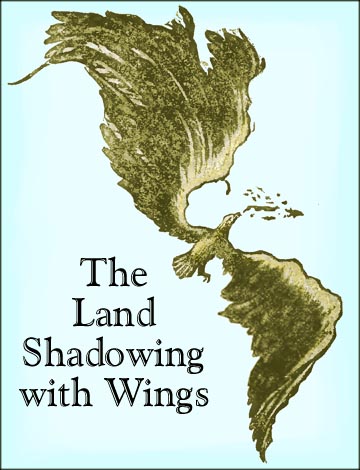
The American Continents Symbolized as Outstretched Wings (A Typical Mormon Interpretation of the Isaiah 18:1-2 "Wings Prophecy") (under construction) Charles B. Thompson's 1841 Evidences of the Book of Mormon 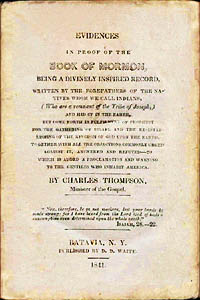
|
return to top of the page
Return to: Oliver Cowdery Home Page | Gathering of Latter Day Israel | Bookshelf
Smith's History Vault | Spalding Library | Mormon Classics | Newspaper Articles
(last updated: July 5, 2012)
